What These Americans, Their Hearts In Ukraine, Want You To Know
ACROSS AMERICA — In the middle of America, Ukrainian expat Irina Bassis goes to bed and wakes up with her cell phone in her hands. It’s an unusual habit for Bassis, 59, who, tired of ugly and fractious conversations, had been on a social media hiatus before Russia’s brutal and unprovoked invasion of her homeland.
Now it’s a pipeline to raw, on-the-ground stories — untarnished by propaganda — from the people she loves.
“My heart is bleeding,” Bassis told Patch in a phone interview from her Ames, Iowa, home Sunday. She spoke as she soaked her feet, cold from being outside at a pro-Ukraine demonstration, in a bath of hot water and dried mustard, a Ukrainian folk remedy passed down through generations.
“I wake up, I check with people; I go to bed, and I check with people,” she said. “I’m checking on my niece in Kyiv. I’m checking the news to make sure people are alive, Kyiv is not taken and Zelenskyy is still the president.”
Kyiv was badly battered when Bassis awoke Wednesday, but President Volodymyr Zelenskyy was still alive. But with more than 2,000 Ukrainian civilians reportedly killed so far, the situation is growing ever more ominous.
How long can Ukraine’s outgunned military — bolstered by ordinary citizens who have won much of the world’s heart with their courage, salty defiance and, in the raw terms appropriate in such a brutal war, badassery — hold Kyiv?
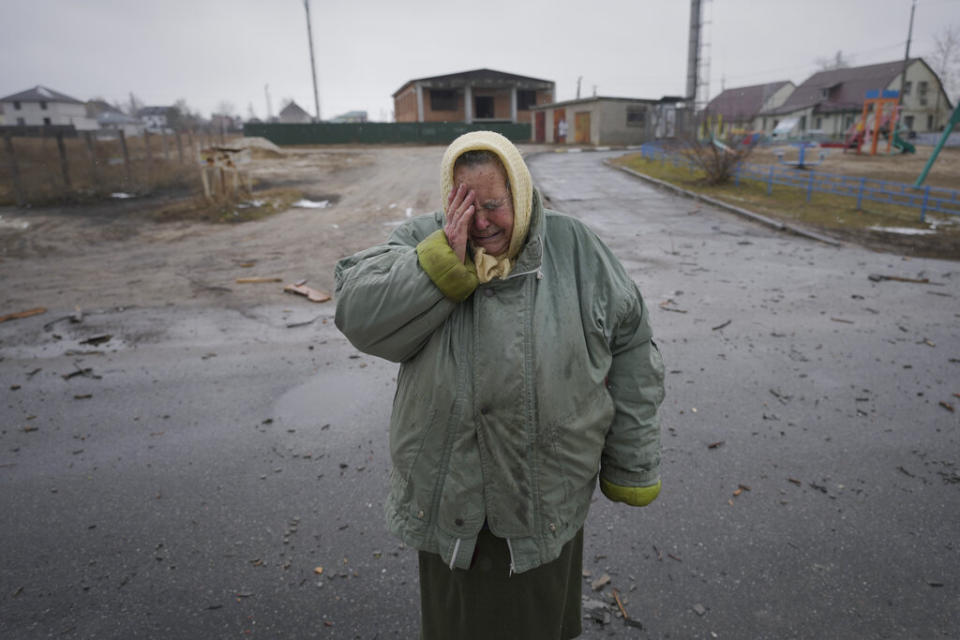
On Wednesday, Russian forces were continuing their assault on crowded cities, pounding Kharkiv, Ukraine’s second-largest city with 1.5 million people, and its Freedom Square city center, an important symbol renamed after Ukraine declared its independence in 1991. A 40-mile-long convoy of tanks and other military vehicles continued to advance toward Kyiv, and the southern city of Kherson is now under Russian control, according to reports late Wednesday.
Russian President Vladimir Putin’s objective isn’t clear, but in the West it is believed he intends to topple the government of Ukraine and install a Kremlin-friendly regime.
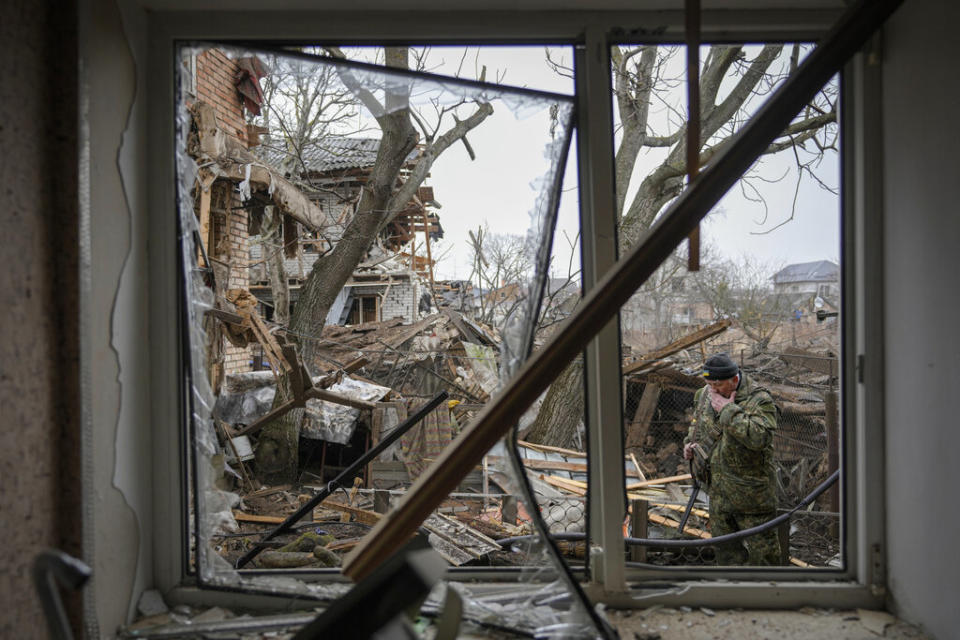
‘They’re Afraid’
Larry Johnson may well have been shuttling between one of his three daughters’ homes in Seattle at the exact moment his wife, Vika, hid in an apartment building, shielding herself from a Russian airstrike on their home city of Dnipro, Ukraine, some 5,600 miles away.
She had thought it was safe to retreat from the basement bunker, where she’d been sheltering with family since the Russians started shelling Dnipro a week ago Wednesday. She miscalculated.
“The bunkers weren’t ready for people,” Johnson, 69, told Patch in a Facebook Messenger interview Sunday, explaining why she’d taken the chance. So far, internet connections haven’t failed, and they’ve been able to remain in touch, but he doesn’t kid himself about the peril to his wife.
Johnson moved to the region about a decade ago to take a professorship at a university in Slovakia, leaving behind a long journalism career in Iowa. When the COVID-19 pandemic hit, he moved his journalism, mass communications and composition courses online and moved with Vika to Ukraine, where he’s now a permanent resident.
He’s stuck in Seattle for the time being after having come home to visit his children for Christmas. It’s some solace to know his wife is in a “good situation” compared with others because she has a room by herself. She fills the hours with Facebook Messenger talks with her husband and watching television.
“But,” he said, “people don’t know much of anything, and they’re afraid.”
‘Pretty Tough Group Of People’
These two people, both with deep ties to Ukraine, have never met.
Yet they are examples of people who have woven themselves into the culture of each other’s country. They make the world community smaller with their common concern for what’s on the line in Ukraine.
“If Russia stops fighting, there will be no war,” reads a phrase repeated on protest signs hoisted defiantly at rallies from one U.S. coast to the other and translated into languages around the globe. “If Ukraine stops fighting, there will be no Ukraine."
Johnson edited big and small newspapers in Iowa, most recently as a state editor at the Cedar Rapids Gazette, before moving overseas.
Bassis, now a U.S. citizen and the assistant director of lecture programming at Iowa State University, immigrated in stages, spending a half year here and a half year in Ukraine, in the early days of the country’s independence. Her former husband, Vlad Bassis, was a key facilitator in a citizen diplomacy program that started in 1993 and brought 235 adult Ukrainians to Iowa before U.S. Agency for International Development grants shifted to other priorities and countries.
Neither is surprised that Ukraine has mounted such a fierce resistance to Russia's aggression.
“Not at all, honestly,” Johnson said. “They’ll resist you if you try to buy a car from them.”
Johnson was joking, breaking his deep concern for his wife’s well-being with levity, but there’s a thread of truth in what he’s saying. Ukrainians are stubborn, a streak developed over 30 years of independence and strengthened by years of conflict and aggression by Moscow.
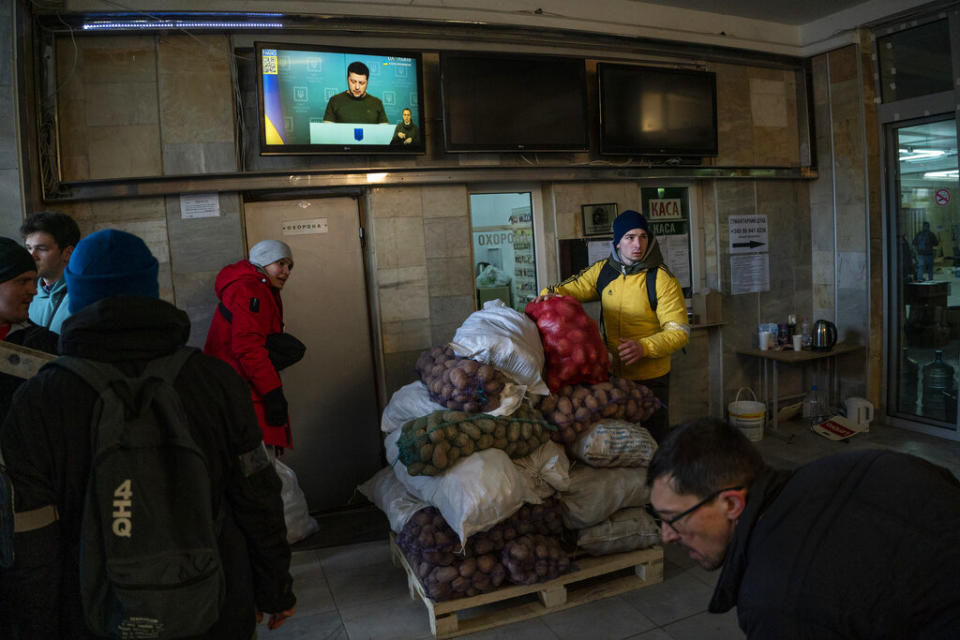
As of Sunday, Bassis’ 80-year-old mother was stubbornly refusing to leave her small apartment in Cherkasy for the shelter that Bassis’ brother created in his home — even while knowing the city is a strategic target of Russia due to its location on the Dnipro River, which runs the length of the country and divides its western and eastern regions.
“She said she has a pillow and a blanket, and she’ll survive,” Bassis said, resigned.
Her brother, 52, closed his dentistry practice and prepared to fight. He explained to his sister that he wants to be able to give the right answer when his grandson asks, “Grandpa, when Ukraine was fighting the Russians, what did you do?”
Johnson said his wife “spent the first night crying,” but is adjusting to life in the bunker. “She’s OK,” he said. “It’s a pretty tough group of people — sometimes a little too tough.”
What surprises Bassis more than Ukrainians’ bold intransigence is Westerners’ widespread support for the country. But she’s not sure the latter would have happened without the former.
By standing up to the aggressors, Ukrainians convinced the world they’re worth standing up for, Bassis said. As Moscow was only moving toward Ukraine’s borders, support abroad for the country was more tepid, she believes.
“It was much more concerted and confirmed support after they saw what kind of defense Ukraine is putting up, how fiercely they are defending themselves,” she said. “I’m very proud of my country and what its citizens are doing, the level of pride they exhibit. Without that level of resistance, I’m not sure there would be this level of support.”
A Turning Point?
Del Christensen, executive director of Des Moines-based Iowa Resource for International Service, is hardly a disinterested party.
He has had a busy week checking on the wellbeing of Ukrainians who traveled to Iowa over the years, then relaying information to the Iowans who formed connections with them now amplified by the events in Ukraine.
Christensen said in a phone interview that they people he’s reached out to in Ukraine share “a combination of sadness this is happening to a country they love so much, but a resilience that not only will they get through this, but there will be a time, hopefully in the near future, that they’ll be able to show the world the beauty of the history of Ukraine again.”
“They want to get past the current violence,” he said. “They’ve lived through other conflicts where cities were nearly or completely destroyed, or their parents or grandparents lived in cities that were destroyed.
“Their history will not be lost forever, the beauty of their country will not be lost forever, and they want to be sure that in the future, they get to show that to the world.”
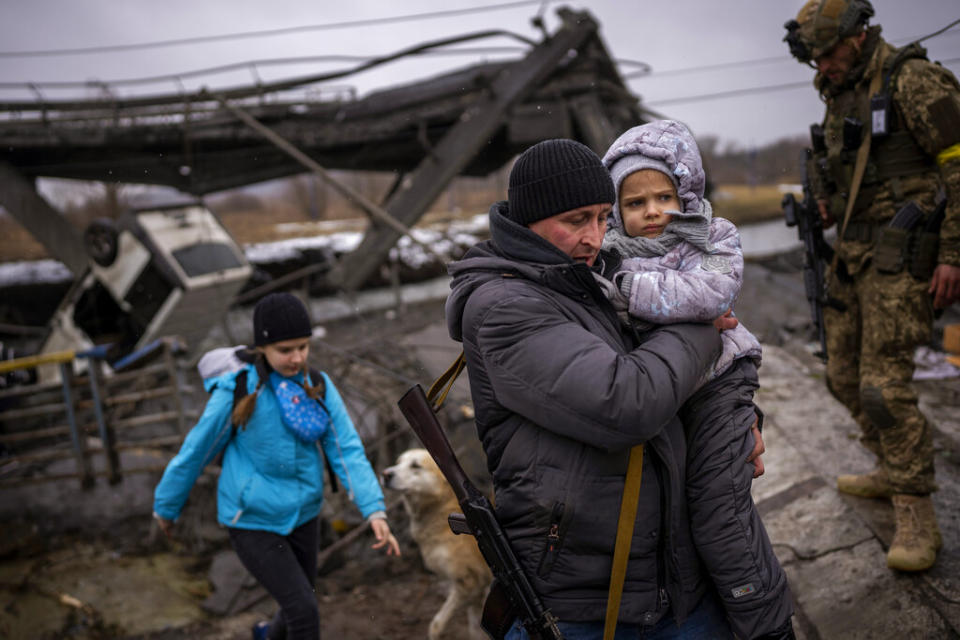
Christensen, whose organization leverages sister-state and sister-city relationships throughout Ukraine and Russia in its programming, believes creating face-to-face connections through citizen diplomacy offers one of the best hopes for overcoming years of conflict in the region.
“We need to get past the mentality of forcing country boundaries,” he said. “I hope this is a turning point for those in Russia that have thought that way, for those in Belarus who have thought that way and for those in Ukraine who have thought that way.”
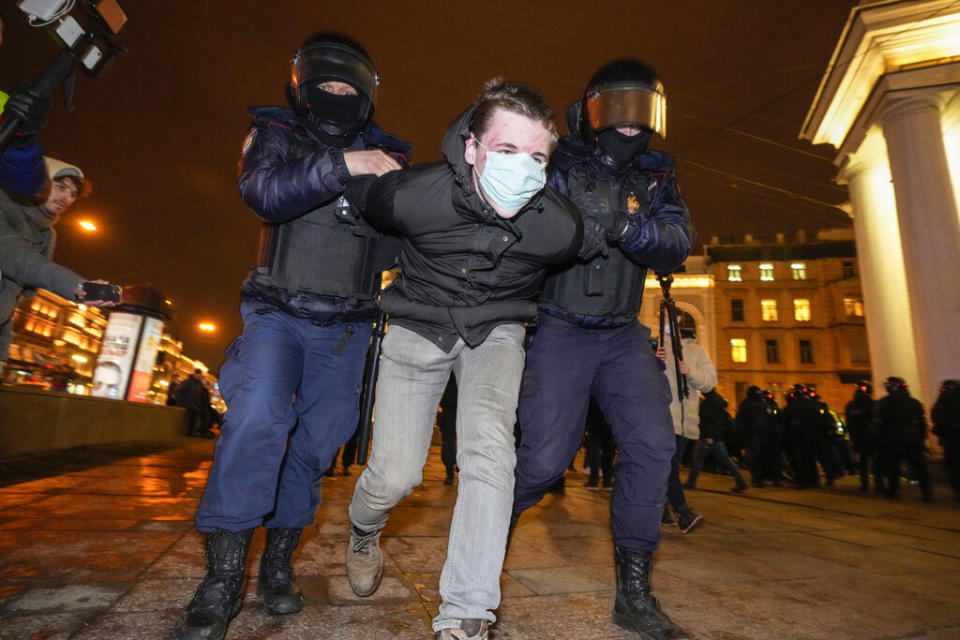
‘I Wish It Would Stop’
Johnson doesn’t know what lies ahead. He and Vika have been through separations before — in 2016 in a failed coup d'état attempt in Turkey, where he had taught since 2005.
Getting out was harrowing. Johnson said he was detained at the border, labeled a threat to national security and spent a night in jail. He was allowed to leave and return to Slovakia; but as a Ukrainian national, Vika was stuck in Turkey for three months.
Johnson’s hope is that he and Vika, 55, can be reunited in Slovakia, where both have residency. But with the United Nations Refugee Agency warning that the number of people fleeing the country could cross the 1 million mark soon, he doesn’t expect the process to be easy or swift.
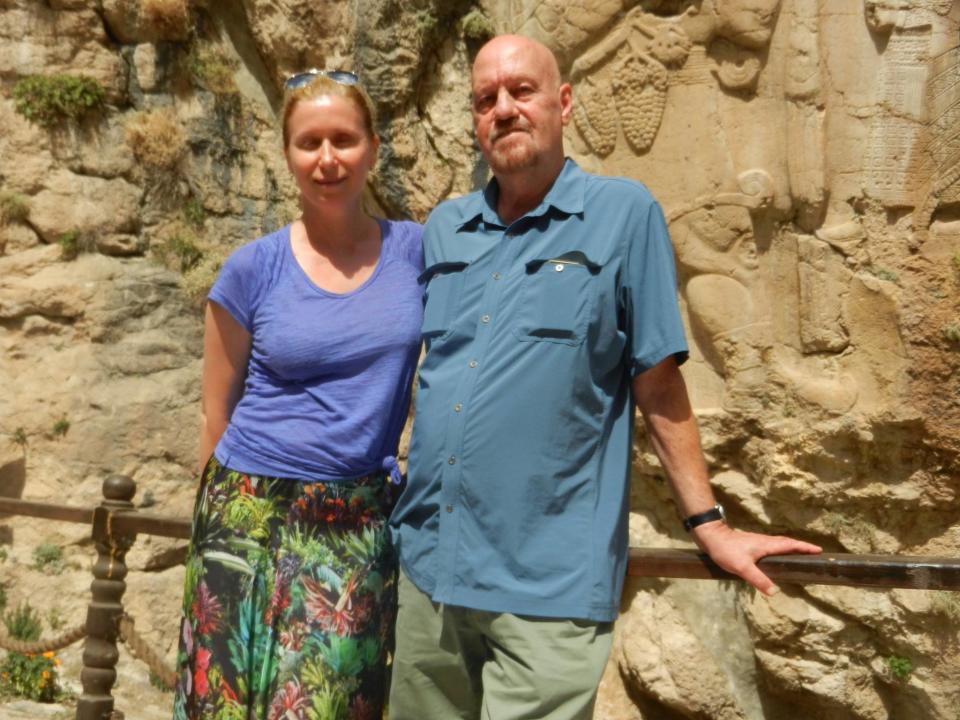
“This has happened historically to people over and over again,” he said. “I don’t have any special insights. In World War II, people were decapitated from their families. This goes on and on and on. I wish it would stop.
“It is so surreal. We say it all the time, but this really is. It’s crazy. I’m beyond worried, of course. Maybe in a little while she can get the order to Slovakia. If she can get there, she at least has some support.”
‘This Has Changed My Life’
Ukraine is not as monolithic in its nationalism as it may appear to a world watching from afar. Lviv, on the western side about 40 miles from Poland, has historically been the cradle of Ukrainian nationalism and in many respects is more European than Russian, while cities farther to the east are culturally more similar to Russia’s.
“This has changed my life,” Bassis said. “I have never been this pro-Ukrainian. I feel I need to do something for [my daughter] Anastasia and myself. This has changed my perception of my country.
“I am so proud of the determination of Ukrainians. What Putin has done is, he united Ukraine, no matter the differences.”
On Wednesday night, Bassis will go to bed again with her phone, waiting for news.
The Associated Press contributed reporting from Ukraine.
This article originally appeared on the Across America Patch

